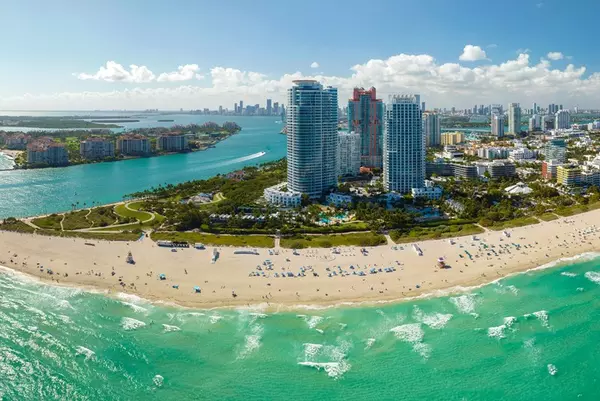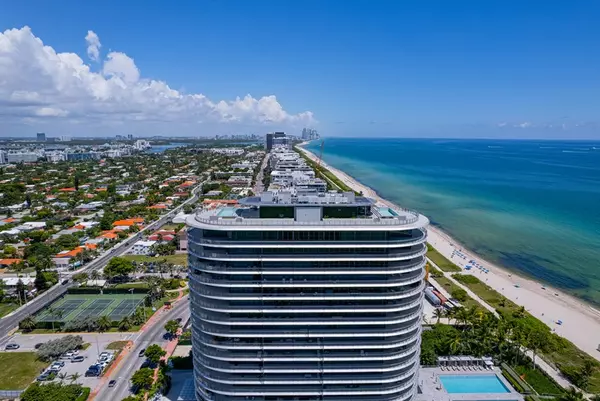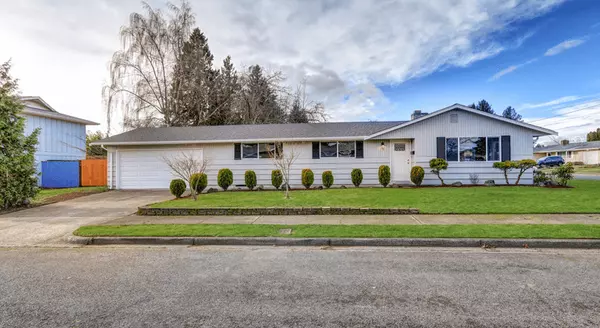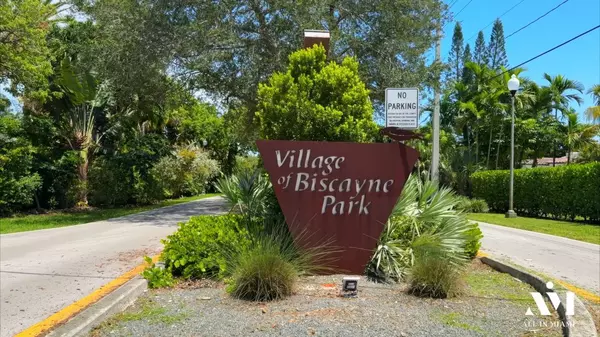What is TCO in Construction & Why Does It Matter to Miami Condo Buyers?


When any new construction project in receives its Temporary Certificate of Occupancy in Florida, or TCO as it is popularly known, it marks a significant moment in its journey to completion, but an even more significant one if it’s a pre-construction condo. For buyers, this means your new residence is legally approved and safe to move into, with only minor construction work pending. Of course, to do that, it also means that your developer now has permission to close on the units, so you will need to have the rest of your purchase funds ready to take possession of your residence.
While this only scratches the surface, in this article we’ll dive deeper into some of the commonly asked questions.

— What Is a TCO in Construction in Florida?
In Miami, Florida, when a new construction condo (or structure) is granted a Temporary Certificate of Occupancy (TCO), it serves as legal proof from local government authorities that construction has been adequately completed up to a certain stage and that the building is safe for people to work in or live in, depending on its permitted use.
This document stands as tangible evidence that your condo complies with essential building codes and guidelines, that it was built to its design specifications outlined in the permitted plans, that all basic life safety systems are in place and have been found safe for occupancy, and that the building is just weeks or months from final inspection and delivery of the final Certificate of Occupancy (CO). As a condo buyer, it’s reassuring and exciting to know that a project you're considering or have invested in has obtained its Temporary Certificate of Occupancy (TCO).
In Miami, the City of Miami is responsible for granting the TCO for all new construction projects; however, relevant authorities may change based on the zoning of each project.
In terms of construction, having a TCO means you can be confident that the majority of the building is complete, with the exception of minor construction and non-life-threatening issues. These outstanding tasks may include adding finishing design elements, furnishing common areas, installing landscaping, and attending to other important details that will not compromise the building's safety or basic living requirements, such as plumbing, electrical, fire safety, and so on.
Additionally, when a developer receives their Temporary Certificate of Occupancy in Florida, it signifies that they can proceed with the closing process while resolving the outstanding issues. It also allows them to arrange real-time property tours for prospective buyers and start moving their building management staff into place, such as front desk personnel, security, valets, custodial staff, and property managers.
It also means that you, as a new buyer, can start planning to move your own property into your unit, or start your interior design process, such a painting, finish work, or any modifications you plan to make to your unit.
— What Needs to Be Completed for a Temporary Certificate of Occupancy?
While a complete TCO inspection checklist would depend upon the location and zoning of each project, such as Miami, Miami Beach, or North Miami Beach, there are a few essential checks that need to be completed before the certificate is issued. These checks include inspecting and passing the building’s structural integrity, electrical systems, HVAC functionality, plumbing, hurricane protection, fire safety measures, and more to guarantee the habitability of your condo.
Once a series of inspections have taken place, with inspectors passing the requirements in respective construction disciplines, the documentation is then submitted to the local building department for final review. If the authority is satisfied with the completion of all necessary work, the Temporary Certificate of Occupancy is granted for a limited period of time.
— How Long Is a Temporary Certificate of Occupancy Valid?
Based on approvals, a Temporary Certificate of Occupancy (TCO) granted by the City of Miami will be valid for a period of 90, 180, 270, or 360 days from the date of issue. It is also possible to extend a TCO once it expires. However, it is recommended that all issues and pending construction be completed and a final inspection be scheduled within the timeframe mentioned in the TCO.
In our 20+ years of experience serving Miami’s luxury real estate market, we’ve observed that most pre-construction condos are generally completed within a year of obtaining their TCO, as delays could impact the reputation of the developer. However, considering that extensions are always possible, buyers can move into their new construction condo as soon as they close on their contracts and receive a green light from the developer’s team.

— When Can I Move After the Pre-Construction Condo I Bought Gets its TCO?
Ideally, if everything goes as planned and the developer’s team reaches out to you for closing, you should be able to move into your brand-new condo right after it receives its TCO and you have closed on your unit.
However, it is always advisable to discuss with your realtor or developer’s representative the readiness of your unit (especially the furnishings for turnkey residences), the number of amenities that will be available for use, the overall functionality of the building, and whether remaining construction work or inspections would be a daily nuisance or not.
If you have questions about how a TCO may affect your purchase timeline, or when you can move into your new construction condo, reach out to us and can provide expert guidance.
— Can You Live in a Condo with a Temporary Certificate of Occupancy?
Yes, in most cases. In Miami, a TCO grants you the same rights as a Certificate of Occupancy (CO), even though it is valid for a limited period of time.
However, before you decide to move into your condo based on the issuance of a TCO, it’s important to remember that the developer will still be in the process of adding finishing touches, installing remaining amenities, and completing other minor construction tasks.
This means that while the building will be habitable, it may not be fully equipped with all the promised amenities, facilities, interiors (or furnishings in case of turnkey condos), and experiences. Therefore, it is highly recommended that you consider these factors and consult with your agent before starting your move-in process.
For example, if a pool is very important to you, but they will not have the pool finished for 2 more months, you may wait to delay your move-in date.
— Can You Close on Your Condo with a Temporary Certificate of Occupancy?
Yes, developers are allowed to initiate closings as soon as they receive a Temporary Certificate of Occupancy (TCO) in Miami. Receiving a TCO is a major milestone for a pre-construction project and indicates that the project is just months from final completion and receiving it Certificate of Occupancy. It is also a major indicator that buyers who’ve already reserved a unit should start getting ready to make the final payment.
This is also a great opportunity for potential buyers/investors to seek out below-market price deals in the project, since developers will be eager to close on an remaining units in case the building is not fully sold out, or first buyers may be looking to resale their brand new units. Our experienced real estate agents would love to help negotiate a lucrative deal for you in any of Miami’s pre-construction condos. Give us a call or send us an email and we’ll be happy to see how we can meet your needs.

— How Long Does it Take to Get the Certificate of Occupancy After the Final Inspection in Florida?
Once the building is completely ready, with all its amenities and systems in place, developers in Miami will call for a final inspection. After the relevant authority has verified that the project is in compliance with all applicable regulations and codes, a Certificate of Occupancy (CO) will be issued within days of the passed final inspection.
A CO is the final document issued by the city or county that confirms that the building is entirely safe for people to live in, thereby securing your investment and future resale value, and allowing to move into your new home, or start renting your property if it is an investment condo.
— Which Miami Condos Received Their Temporary Certificate of Occupancy (TCO) in 2024?
Miami’s pre-construction condo market has been booming for the past few years and we have been keeping track with our monthly pre-construction roundups (get them in your inbox by subscribing to our newsletter!). And with thousands of units in the pipeline and more on the horizon, we’re starting to see the first round of condos getting their TCO.
Here’s a quick look at some key new Miami construction projects that got their TCO in 2024:
-
Aston Martin Residences, Downtown Miami
This highly anticipated condo project by its namesake British luxury carmaker received its Temporary Certificate of Occupancy in April 2024. Rising 821 feet (70 stories), this glimmering sail-shaped icon is the city’s second-tallest and tallest condo building you can reside in.
Standing at the confluence of bay and river and affording unmatched water and city views, this branded supertall features Aston Martin’s signature color palette, number plinths, and wood paneling, along with Downtown’s first deep-water marina, a helipad, a permanent art gallery, two cinemas, and more. -
Gale Miami Hotel & Residences, Downtown Miami
This short-term rental-friendly condo-hotel received its TCO in July this year. The 51-story tower features 448 turnkey units, 160 fully-furnished residences available for daily rentals, and 80 condo-hotel units.
You’ll find a wide range of amenities from a 16,000-square-foot poolside retreat with cabanas and a hammam spa to three dining concepts by Chef Erhan Ozkaya, a craft cocktail lounge, a ground-floor coffee shop, a kid’s playroom, coworking spaces, and more.
-
Onda Residences, Bay Harbor Islands
This waterfront project received its TCO in August 2024. In addition to interiors by A++ Human Sustainable Architecture, all residences in this eight-story building feature an office/den space, tiled terraces with private gardens, mid-century style furnishings, and more, creating a serene urban sanctuary.
With a private 15-slip marina and water sports launch dock in your backyard, you can experience the ultimate waterfront lifestyle living at this boutique address. -
Mr. C Residences, Coconut Grove
Encompassing the Bayshore and Tigertail towers, this nautically-themed boutique project received its Certificate of Occupancy in July 2024.
Delivering a winning combination of modern European glamor and Cipriani’s world-renowned hospitality, you’ll find Miami’s first private Bellini Bar, a full floor of body-and-mind wellness spaces, multiple pools, the Le Specialita Market and Café, a Little C’s Learning and Adventure Lab, and more at this pair of stunning 21-story towers.
To find out about more buildings that could soon get their TCO, check out our complete list of Miami condos you can move into in 2024/2025, and if you have any more questions regarding what is a TCO in terms of construction and how it impacts your pre-construction purchase, contact us for expert advice and buyer representation in Miami through Fort Lauderdale.
Categories
Recent Posts











"Molly's job is to find and attract mastery-based agents to the office, protect the culture, and make sure everyone is happy! "


